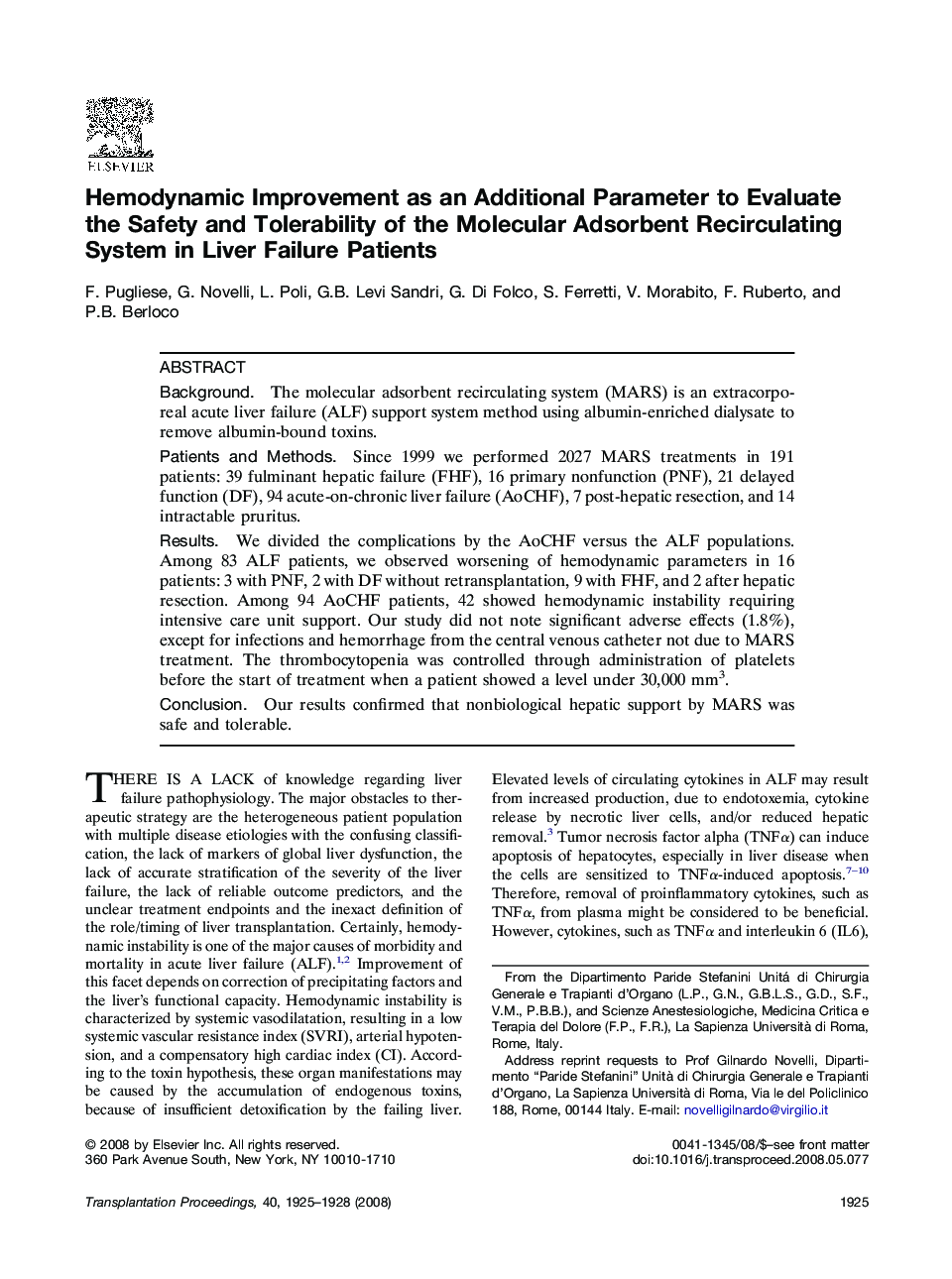| Article ID | Journal | Published Year | Pages | File Type |
|---|---|---|---|---|
| 4260287 | Transplantation Proceedings | 2008 | 4 Pages |
BackgroundThe molecular adsorbent recirculating system (MARS) is an extracorporeal acute liver failure (ALF) support system method using albumin-enriched dialysate to remove albumin-bound toxins.Patients and MethodsSince 1999 we performed 2027 MARS treatments in 191 patients: 39 fulminant hepatic failure (FHF), 16 primary nonfunction (PNF), 21 delayed function (DF), 94 acute-on-chronic liver failure (AoCHF), 7 post-hepatic resection, and 14 intractable pruritus.ResultsWe divided the complications by the AoCHF versus the ALF populations. Among 83 ALF patients, we observed worsening of hemodynamic parameters in 16 patients: 3 with PNF, 2 with DF without retransplantation, 9 with FHF, and 2 after hepatic resection. Among 94 AoCHF patients, 42 showed hemodynamic instability requiring intensive care unit support. Our study did not note significant adverse effects (1.8%), except for infections and hemorrhage from the central venous catheter not due to MARS treatment. The thrombocytopenia was controlled through administration of platelets before the start of treatment when a patient showed a level under 30,000 mm3.ConclusionOur results confirmed that nonbiological hepatic support by MARS was safe and tolerable.
